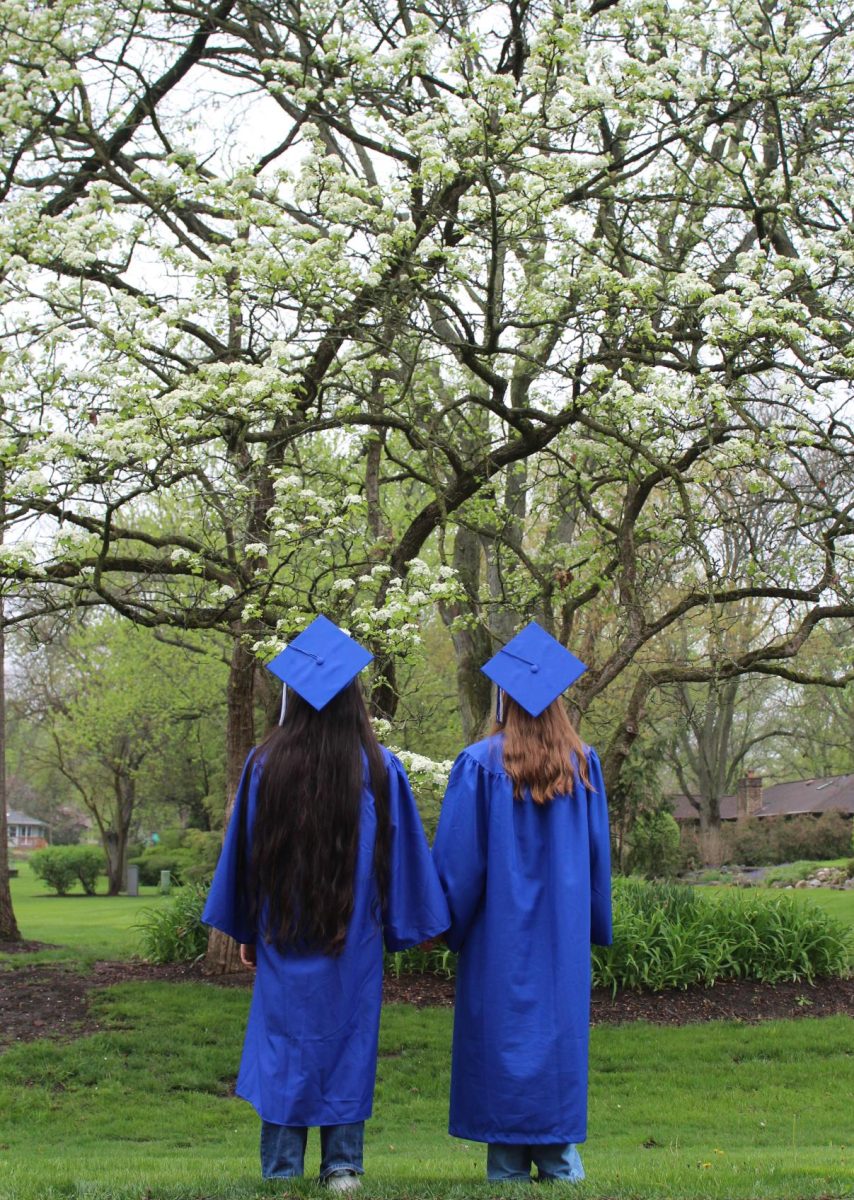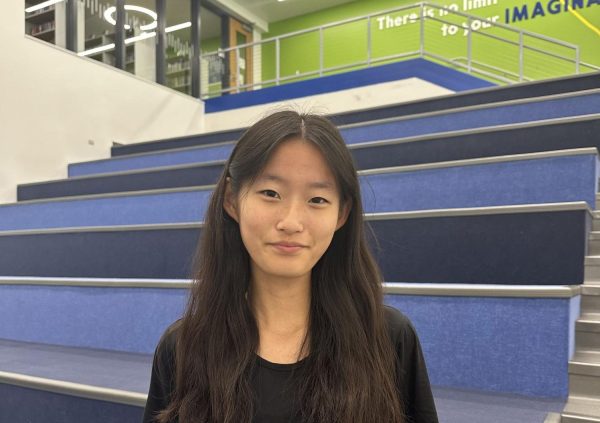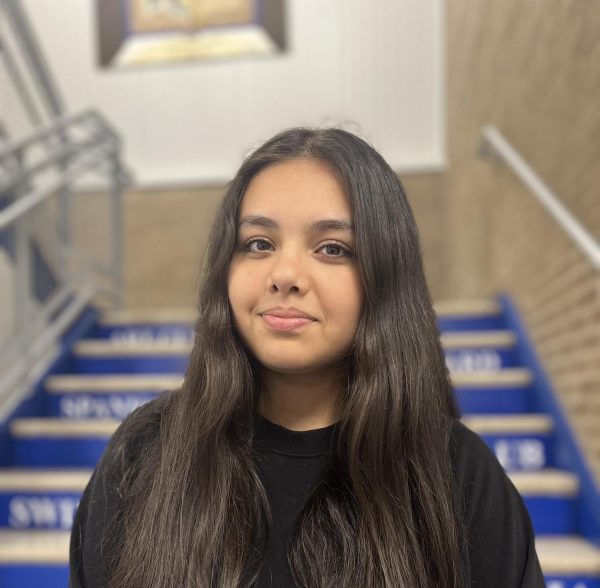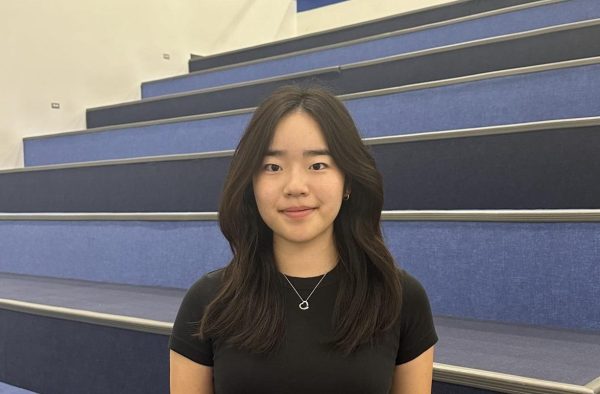As seniors say goodbye to the familiar hallways and faces that have marked their years at LZHS, it is also a time for them to reflect on their growth. The high school journey starts with freshman orientation, and ends with a cap and gown. The in-between is four-years’ worth of transformative experiences that shape our paths of self-discovery, identity, and aspiration. Who we are before high school is often not the same as who we are after. As we learn more about ourselves during these formative years, our passions and ambitions can often change. For this year’s senior spotlight story, we gathered the narratives of eight LZHS seniors who made major changes and decisions in their future paths during high school: the years that shape us.
REROUTING HIS FLIGHT
Oftentimes, the expectations we set for our futures do not account for the circumstances of our reality. When reality hits us, however, we do not have to give up our ambitions, but simply adapt.
Jack Bialecki, senior, initially had plans to follow in his father’s footsteps and pursue a career as a pilot. Being colorblind, however, Bialecki faced a significant obstacle in obtaining the medical clearance required to become a certified pilot from the Federal Aviation Agency (FAA).
“I can’t control being colorblind. It’s just genetics. There is nothing [that] I could do to fix it or correct it, besides really just praying and hoping that I can pass a colorblind test. So, there was definitely frustration,” Bialecki said.
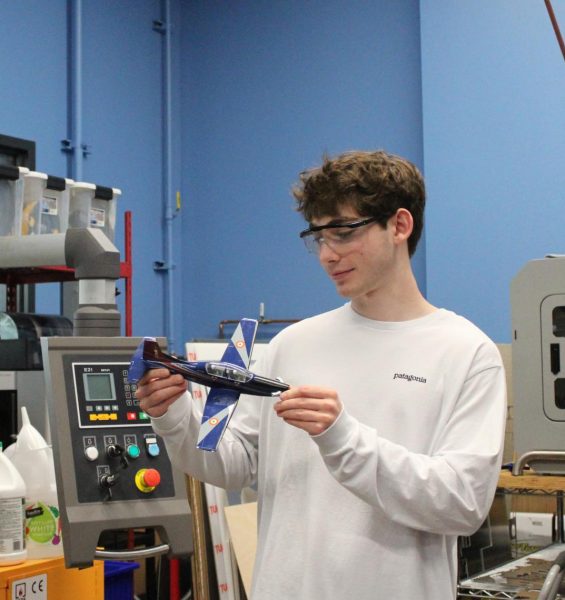
After a month-long process of failing tests and “jumping through hoops” with the FAA, Bialecki obtained the necessary clearance. The process left him feeling “exhausted” and “[not wanting] to do piloting anymore.” With his fascinations in “planes, jets, and rockets” persisting, Bialecki realized his goals lay in aerospace engineering instead.
“I’d much rather build something than fly something. That was kind of my reasoning. I was like, ‘Alright, I’ll just build airplanes,’” Bialecki said. “[… Engineering] is much more interesting to me. It makes more sense in my head to put something together rather than just operate something that someone else already had the opportunity to build and develop. It just clicks.”
With plans to go to Purdue University, Bialecki looks forward to the opportunities that come with attending a top-engineering school, such as co-ops and internships with major companies. Another aspect that appeals to Bialecki is the creative freedoms that the school offers.
“There’s no class where I could just show up and make something [at LZHS…]. Purdue has an entire building, [the Bechtel Innovation Design Center], dedicated to just machines that engineers can come in, use, and make whatever they want. Whether it be for a school project or personal use, it is completely free for them to use,” Bialecki said.
Beyond college, Bialecki hopes to take these experiences into the transportation industry, specifically for aviation, and “pave the way for new technologies.” Today’s transportation industry is known for having deficiencies in transportation costs, fuel efficiency, harmful environmental implications, and more. For Bialecki, who sees engineering as a means to make “a difference in the world,” he hopes that he can use engineering to remedy such problems.
“The cost of transportation is very high and by designing more efficient engines [and] ways of travel, we can cut down on that and make it more affordable for everyone,” Bialecki said. “I think the transportation industry is the biggest way that I can affect day-to-day life for people. I think that’s gonna be the biggest way I can give back.”
RETHINKING HER ROLE
As children, our scope of life is generally limited, and anything seems possible. When we also spend most of our time doing one activity, it only seems natural to keep on doing it. That was what theatre meant to Claire Denton, senior.
Since middle school, Denton has been involved in school plays and musicals, as well as participated in Cricket Theatre Company. Through these exposures, Denton has closely experienced what it is like to both act in and direct shows.
“I was super involved in [theatre], and I loved it. I just couldn’t envision myself being fulfilled doing anything else because [theatre] was what I was immersing myself in every single day,” Denton said.
Denton especially took a liking to being a student director, and decided she wanted to become a director in the future by the time she entered high school.
“Oftentimes, as an actor, I would find myself thinking about how I would play other characters differently or wanting to give advice, but that wasn’t my place as an actor,” Denton said. “But I liked, as a director, being able to have a say in the entire story and not just my specific part because I was very passionate about it and had a lot of opinions.”
Despite her passion, Denton chose to pursue a career in psychology, due to logistical obstacles that stood in the way of being a theatre director. This includes the competitive nature of the theatre industry, where Denton admits it would be “a lot of work to get there” and be successful.
“The more I was researching, [the more] I came to realize that the lifestyle before you’re successful can be very expensive, [especially] to live in the places where acting is most accessible,” Denton said. “Mentally, I deal with a lot of anxiety already and so [to live] in a really high stress environment all the time, would [not] be sustainable for me. I think [there] would be way more failure than success. It just would not have been worth it for me mentally to go through that for a purpose that may never be fulfilled.”
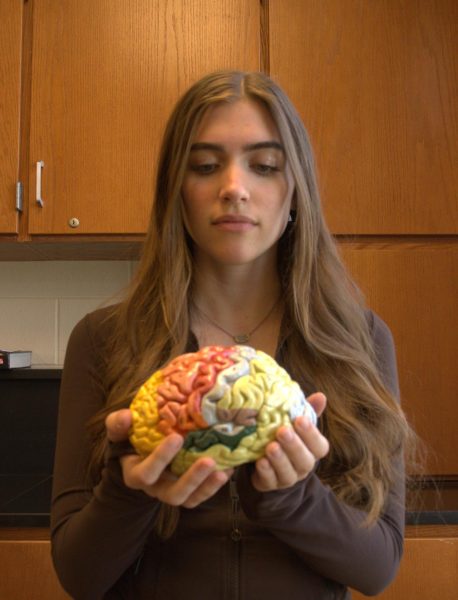
In search of a career that would offer her gratification and stability, Denton’s love for psychology flourished. Denton is “already planning to go to grad school” for clinical psychology, because of personal experiences.
“I grew up in a house with a parent who had really intense mental health issues. So that was kind of a full circle moment for me because I had to kind of deal with that growing up, I wanted to be able to help people in the future and even with my own mental health struggles. I think it gives me a sense of empathy because I’ve been through that [too]. I think could be then utilized in a therapeutic environment,” Denton said.
Besides her personal connections to the field, Denton says she has also received a lot of encouragement from her friends.
“I was growing deeper in my friendships in high school, and my relationships have become really, really meaningful,” Denton said. I’ve gotten on a deep level with a lot of my friends. I felt like I was getting really consistent feedback that I was a good person to talk to and giving advice that was productive for people.”
High school, too, has played a motivating factor in “solidifying [her] interest.” Taking the AP Psychology class right now, Denton says that the course has given her an overview of all the different categories of psychology.
“There have been certain units that interested me more, which helped me [understand the] potential career paths,” Denton said. “I’m definitely interested in [a] childhood focus, because [of] my childhood. I am also interested in things like substance abuse because I think that was really interesting for me to learn about how biologically that happens, how it affects you, and also your behavior and rebuilding relationships after that.”
Even so, the decision to switch paths has not been an easy one to make. Denton says she still “questions it sometimes because there is still a part of [her] that feels like nothing can bring the amount of fulfillment and emotion” out of her that theatre does. However, she believes that her “skills can be better used in psychology” are where she can make the biggest impact on society.
Going to Michigan State, a university that met her needs, is an important part of balancing her passions. Although a school with research opportunities and internship programs for psychology were a heavy deciding factor, Denton says she looked for a location that allowed her to stay connected with theatre even after high school.
“[I made sure] they have a strong choir program and student-led acapella because I just know that’s something I would need to keep me fulfilled. I love the idea of maybe one day being involved in community theatre or directing kids kind of like I do now so that’s a way I think I could keep it in my life,” Denton said. “It’s very comforting for me to think that there are always opportunities for the arts in my life. Regardless of career, it’s not like I’m ever losing that.”
BALL TO BATON
Soccer was the only sport she played for nine years, and going D1 for soccer in college was a years-long dream in the making. Describing her younger-self as a girl whose “life revolv[ed] around soccer,” she never would have believed that she would be going D1 for track instead.
“I don’t think that there was anyone who was unsupportive, or questioning it, but I do think there were some people who were kind of confused,” Riley Betz, senior, said. “They were usually people who weren’t super close to me. I would get a couple of texts [from] people being like ‘I didn’t know that was something [you] wanted to do,’ and I was like, ‘I didn’t know either.’”
Back in 2021, COVID-19 was impacting everybody’s lives in a multitude of ways, forcing many to adapt and make changes to their lifestyles. For Betz, the pandemic extended the club soccer season, which overlapped with the school soccer season. Unable to play on both teams at the same time, Betz make the decision to join the school track team her freshman year, believing that track would only be a year-long endeavor.
“Everyone was just kind of excited [to see me running track] because my strength in soccer was always speed and strength, so they’re like, ‘Well, we’re finally going to see it.’ Then [during] my first meet, I kind of came out running an almost state qualifying time. Everyone was like, ‘What?’ Even I was like, ‘What, what?’” Betz said.
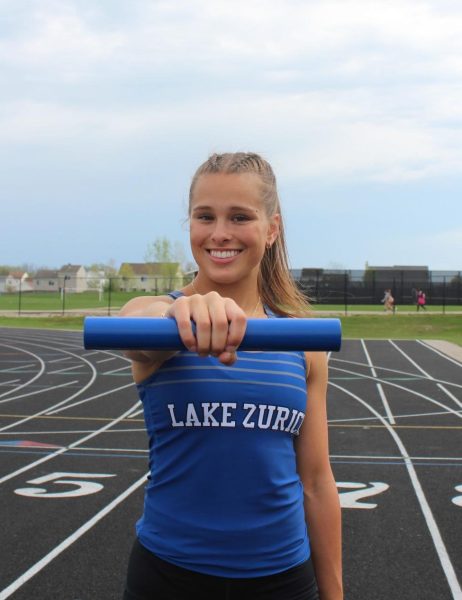
Even after her immediate success running track, Betz’s ambitions continued to focus on going D1 for soccer, a goal that had been created in earlier years. In eighth grade, Betz and her friends made a switch from their old soccer club to a new and “much harder” league: FC 1974. Quickly, Betz would learn that the big decision would pay off. At the age of 15, Betz and her teammates became national champions.
“That was when everyone asked [me], ‘Are you going to be serious about soccer?’ I was always like ‘Yeah, this is what I like,’” Betz said.
However, even though her passion was for soccer, Betz made the decision to continue running on the school’s track team, rather than the school’s soccer team, because of a “might as well” mindset, she says. Despite being “so heavily set on soccer,” it was during these years that Betz found her passion for the sport of track and field.
“I can push myself more on track than I can in soccer. I’m exerting my everything all at once, and to me the feeling after that is unmatchable: knowing you give something your absolute all and being able to see it timewise,” Betz said. “That’s the difference between track and soccer. Getting recruited for soccer, they have to come out and watch you play. If you don’t play good, you’re screwed. With track, it’s all there, all the times. […] Recruiters just see you and your times, and that’s that. You give it your all, you run well, and that’s the end of the story.”
By the end of her junior year, Betz chose to switch paths and try going D1 for track and field, rather than soccer. Describing soccer as her “whole personality,” Betz was having hesitations and worries over the decision.
“I definitely was freaking out about it. […] I told my mom ‘I don’t even know what I’m really thinking here.’ She was like, ‘You don’t have to keep doing it.’ I said, ‘Yeah, but I want to.’ She then [told me], ‘There’s your answer,’” Betz said.
Betz began the recruiting process, and by the end of it, Betz found her future at Miami University, a school she describes as “the perfect fit.” For the next four years, Betz “could tell you all these goals about times and stuff,” but she “wouldn’t fully be [herself] without doing [track], the real goal, she says, is to continue loving her sport.
“I’ve heard so many horror stories about people who go to these D1 schools, and they hate their lives because they’re just working all the time,” Betz said. “My goal is to enjoy what I’m doing while I’m doing it, have fun with it, want to go to practice every day, want to do well, and not have it be a burden for me. [I want] it to be something that I want to do and enjoy doing because, to me, that’s the most important part of playing a sport: that you actually enjoy the sport.”
Since her decision, Betz’s confidence in her commitment towards track has grown, allowing her to give advice for those who are struggling with the same conflict she once had.
“If it’s something that you really want to try, go for it. There is no reason in stopping yourself. […] I’m supposed to track. I had no clue that I was even gonna want to do it a second year, let alone in college, but it was worth a shot, and now I’m going to college for it. I’m gonna be doing it for four more years. I’m really, really happy with that decision,” Betz said. “So, anyone thinking about switching their sport, try it. There’s no point in not [trying]. If you don’t like it, you don’t have to keep doing it, but there’s no reason to not just because you’re thinking that it may not go well.”
EDITING HER STORY
As children, we always looked up to our parents. Some were even inspired to follow in their footsteps. This was the case for McKenzie Bergfeld, senior, when she embarked on a journey in the business field freshman year.
“I wanted to go into marketing because my mom’s in marketing. She used to work at Walgreens where she had a job where she was the buyer for collaborations,” Bergfeld said. “I kind of wanted to do that because it seems fun and my mom got a lot of free samples. I wanted to go into business because of that.”
However, the more Bergfeld thought about it, she realized that English seemed more “fun and interesting” than marketing, as whenever “anybody asked [her] what her favorite classes were, [she] always said English” and not the business classes that she took during high school.
“I was looking up what jobs you could have with English because I was curious. A book editor came up and I was thinking ‘oh, that sounds so fun,” Bergfeld said. “I like books; I don’t think that I’d want to be an author, but with books, they can convey unique messages about society.”
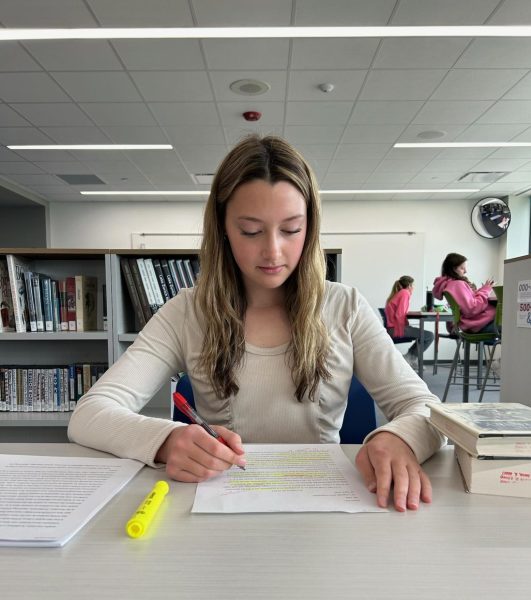
As a book editor, Bergfeld says she is most interested in reading realistic fiction, which is her favorite genre. She also would want to be someone that reads and focuses on the overall story, rather than proofreading for grammar errors. Though, she acknowledges she would likely have to start with looking at grammar and work her way up.
Making a switch at the end of junior year was difficult, however, as by that point, she mainly visited colleges with marketing in mind. Many of her other experiences focused on business as well.
“Last summer, I had a marketing internship. It was at a company called Automotive Keys Group, which makes key fobs and as I took photos of key fobs to put on the website, but I also listened in to some marketing meetings,” Bergfeld said. “Most of my electives were business classes. [I took] introduction to business, marketing, entrepreneurship, and then business communications.”
Due to many business classes on her transcripts, Bergfeld was worried colleges would notice a lack of English electives. Regardless, Bergfeld received admission to Purdue University where she will be attending as an English major.
Even with Bergfeld turning her focus to English, she says she wants to make sure that the university she goes to will be “easy to switch majors” just in case. Although becoming a book editor is her current goal, Bergfeld has found that being a lawyer would also prove to be interesting.
“Now, I’ve been thinking a lot in my government class. I really like it and we went [on] a field trip where we saw a court case and it seemed like fun,” Bergfeld said. “But I think with English, I can decide during college if I want to be a book editor or go to law school.”
PLANTING HIS BUSINESS
Many students also have multiple passions. In fact, it is often too hard to settle on just one pathway as there are so many fields of interest that could captivate someone. The same is true for Thomas Ferrigan, senior.
As a child, Ferrigan said he always “played outside a lot and enjoyed being outdoors.” Since then, he has experienced nature on a multitude of occasions, including at his own home.
“We had a lot of buckthorn, which is an invasive species, so I was helping my family take all of that out and replace them with more native [species]. I’ve done stuff around the house and tried to learn about it and change my habits to fit and help the world,” Ferrigan said.
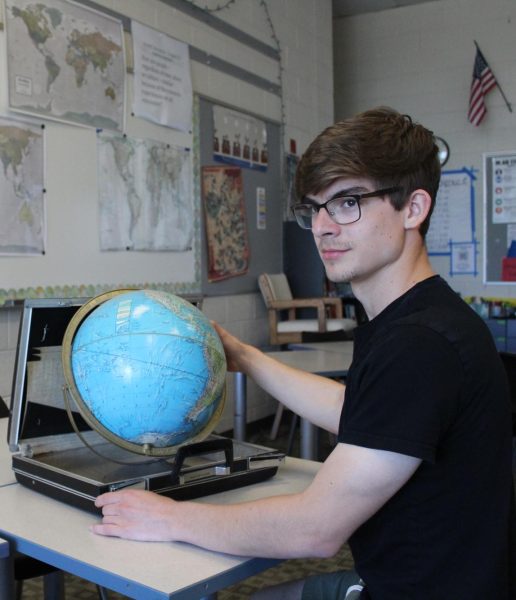
To further his passion for the outdoors, Ferrigan said that he chose to take the AP Environmental Science course offered at school.
“I decided to take AP Environmental Science junior year, and that really helped secure the fact that I want to do something in the environmental field or I want to be a part of it,” Ferrigan said.
With the class, Ferrigan said that it helped him realize how “dire the situation [of climate change] is and how immediate action needs to be taken.” As a result, Ferrigan set sights on pursuing something related to helping the environment. However, it was not a direct path to nature, as he already had an interest in business, due to the many businessmen he met at his summer job.
“The summer after sophomore year, I became a [golf] caddy. I saw that with the business world, [there are] good things and not good things that come out of it. [I saw] what being rich and being in the business world can get you,” Ferrigan said.
Ferrigan’s passion for business, like many others, originates from practical purposes, specifically being able to put food on the table.
“Money makes the world go round and everybody needs money to do anything [they want,] and people with the most money kind of have the most control. So if I can [obtain] that money, I can use that control to do what I want to do and what I deem is the best for the world,” Ferrigan said.
After debating between his two interests, Ferrigan says he decided to merge the two together and create an “environmentally progressive business.”
“[I didn’t want] a job directly involved [in the environment] because I didn’t like taking soil samples; that was not interesting to me. So then, I decided that I liked money and I kind of already wanted to go into finance. So let’s try to put those two together and find something that works,” Ferrigan said. “[As for business], I’m trying to get the money and just redirect it into the environment because I think that that is the best, best path and the easiest path to get what I desire.”
To reach this goal, Ferrigan will be majoring in finance at Illinois State University. After completing his studies, Ferrigan says that he has plans to create an energy business.
“I’m trying to look for opportunities with energy because I think that that is currently one of the big problems and I think that’s a way to make a change quickly. Also, part of my environmental goal is to buy just tons and tons of land in Canada and [have it] just sit there. I [also] want to set up environmental preserves around the world in different spots, and maybe try to reclaim and restore some Amazon forests in the outskirts of Brazil.”
Ultimately, Ferrigan says that his final goal is to make an impact on the world.
“I’ve seen how poorly we’re treating our world, [and with the] combination of thinking that I want to do business, it really came down to [the fact that] I feel compelled to make a change. I feel like it’s on my shoulders. I feel like the [Earth’s] clock is almost zero; we got to do this,” Ferrigan said. “But I feel okay with that. I don’t feel forced to do it. Like I’m excited to take this challenge on and I’m excited to try to do it.”
BUILDING UP TO SPACE
Having thousands of different colored bricks, fitting them together, and creating something new, LEGOs were once a fundamental part of many children’s lives. But where did those passions lead to? Richard Suvi, senior, was one of those many people obsessed with LEGOs, leading him to consider becoming a LEGO designer.
“I [wanted to] have more access to LEGOs and build anything without being limited to how many LEGO bricks I can have,” Suvi said. “Being a LEGO designer, you’re given an infinite amount; you can make whatever you want. You can make castles; you can make houses and cars. Later on, you can also make complex [LEGOs].”
The key motivation for Suvi’s past pursuits lay in the “ability to [physically] make whatever you imagine.” Despite new goals oriented around working at SpaceX, a space technology company, Suvi continues his interests in creating tangible objects by studying mechanical engineering.
With mechanical engineering, Suvi says he plans to focus on the “internals [and] all of the defense, stabilizing the gears, the material structure, and robotics” while working for SpaceX.
“You get to invent [a lot of things]. You find a problem, you find a solution, then try to simplify the solution, and then create it and test it. Mechanical [engineering] gives me skills of how to think outside the box,” Suvi said.
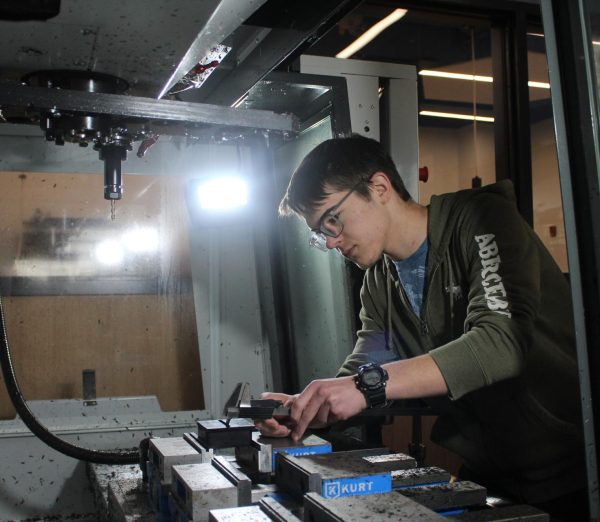
Such skills are further developed by the research required to analyze several factors involved in the engineering process, Suvi says. As a result of his experience with research as well as other skills handy to the field, Suvi believes that he will be a good fit for engineering.
“I’m doing a lot of research identifying constraints. [For example,] you can have [the project] be this expensive. There [are] size constraints and weight constraints,” Suvi said. “[Also,] [I am] able to divide up the problem into individual sections. So like, forming a copper sleeve into a specific shape. You have to be able to transport the material in this order. You have to sort it individually; you have to be able to compress it into different shapes. Other qualities that I have is being artistic: being able to sketch what I want to design [saves me] time, instead of having to use an inventor and make a 3D model of it or use AutoCAD which is computer aided design.”
An invention that Suvi plans on using his mechanical engineering skills for is to create a device meant for people who ski.
“When someone wants to pass another person, they tap their poles to alert the person ahead of them they are trying to pass. So my advice would be to press a button on your ski poles and emit a sound. So you don’t have to keep wearing off the paint on your poles, and [also] sometimes hitting them doesn’t make enough noise,” Suvi said.
For now, however, Suvi plans on focusing on developing his skills in mechanical engineering at the University of Illinois at Chicago.
“[I’m looking forward to] learning manufacturing principles like plastic molding, wire EDM cutting which is like precision welding. They use a wire, electricity and variable to cut material. And then cut like a puzzle piece for them and then we put them together. You don’t even see the cut lines like it’s completely seamless,” Suvi said. “Learning new manufacturing ideas also affects how you design the part or [problems] that you’re trying to solve. There’s always room to learn more.”
SALE–ING BACK TO BIOLOGY
“What do you want to be when you grow up?” is a common question asked in the elementary classroom setting. There are a plethora of ways to respond to this question, but the most common answers we hear are doctors, firefighters, lawyers, teachers, and presidents. Eva Krastev, senior, was not an exception to the many young children aspiring to pursue those careers.
Like many, Krastev was interested in being a doctor from a young age because she believed it was “such a good opportunity to give back to the community.” However, her aspirations were cut short when she realized she had a decisive weakness when it came to going into the medical field.
“I’m very scared of germs, I’ve realized; I’m also really scared of people throwing up. So I thought that [being a doctor] probably wouldn’t be the best for me,” Krastev said.
After deciding to change her aspirations of becoming a doctor coming into high school, Krastev set her eyes on becoming a lawyer as her future career. Ultimately, however, Krastev chose not to pursue the path of a lawyer because of the degree of time commitment the job requires, taking away from her other, more personal, dreams in life.
“[Some of those factors are] travel and definitely family,” Krastev said. “Being able to do fun things on the weekend, like spend time outside, go play a sport, or something like that. If I have kids, I want to go take my kids to practice and just be involved with other things than my job.”
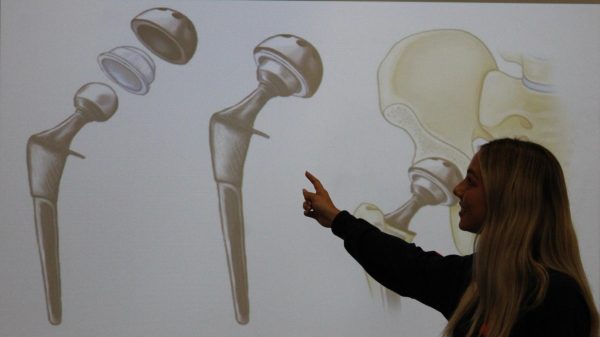
Therefore, after further research and numerous switches in direction, the career that Krastev landed on was to be a salesperson for biomedical devices. Krastev says that she could not stay away from biology, and taking AP Biology helped her further develop that passion as that is where her interests lay. Through developing a relationship with Anne Hopkins, AP Biology teacher, Krastev was able to see a new side to the biology field.
“Mrs. Hopkins is such a good teacher and she is so passionate about [biology] and just seeing that passion, it just rubs off on you. You just want to be around her,” Krastev said. “Realistically, Mrs. Hopkins kind of pushed me to like to be even more interested in bio than I was before, because it’s so specific and detail oriented, but it makes sense when you learn it and it’s like, ‘oh, that’s why this works like that.’”
Besides Hopkins, Krastev says her parents also played a big role in narrowing down what she wanted to do for her future career. As her father used to be an engineer and currently “sells parts [used] in airplanes and cars to different companies,” Krastev says she was motivated by him.
To become a salesperson for biomedical devices, Krastev says that she will be extending her studies at University of Illinois at Urbana Champaign where she will be studying biology. By using the knowledge gained from her studies, Krastev believes that she will be a good salesperson for biomedical devices.
“A hip joint, that people get hip replacements [with], is a biomedical device. So when someone creates a new one, you need to learn all about it and everything that it does, how it works, all that stuff, in order to be able to sell it to a practice. And then also part of the job is to be able to be in the room with the doctor showing them how it works, how to put it in, and how to use it,” Krastev said. “So it’s kind of like a way to be in the room where everything happens and also see behind the scenes and all of that. So it’s like an interesting way to be able to do both [passions] at once.”
Ultimately, Krastev says that although the path to her decision was a long one, she is not planning on looking back on her career path decision.
“I probably am always gonna wonder what could have been if I had gone down those paths, but I don’t know if I’d necessarily regret it,” Krastev said. “I feel like everything just leads you to be in the right place in your life and all your interests and all the opportunities that are available to you, I feel like [they] will lead you to the place that you’re meant to be at some point.”
MECHANICS BEHIND MUSIC
If you know her, then you have undoubtedly seen her with her instrument. Whether it is for the high school orchestra, a class presentation, or other ensembles outside of LZHS, Mira Pietrzkiewicz, senior, is always pulling her bow and plucking the strings of her cello.
Upon joining Midwest Young Artists (MYA), a youth music program, Pietrzkiewicz found herself in a community of like minded musicians that “were getting into these amazing schools,” such as Northwestern University and Julliard. Surrounding herself with people “who really focus on their instrument” was a new experience, and she began to think that her life contained a future in which she could potentially be a professional musician.
“But slowly, [I began] thinking about the logistics of it. A music career is very hard, even if you go to a school like Juilliard or Curtis, you know? It’s not just one job, even if you do become a professor at a college. You still have to teach high school students. You could go on tour, but that’s very taxing. You have multiple jobs all at once. Financially, it’s not stable, even for top musicians, which most aren’t. It’s a very rewarding career again, but it’s not stable,” Pietrzkiewicz said.
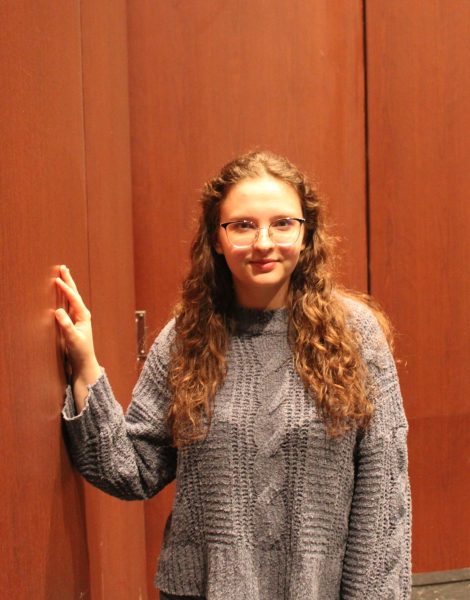
Wondering what to pursue next, Pietrzkiewicz’s love for medical dramas and interest anatomy led her to consider joining the field of medicine and becoming a doctor. However, due to the “amount of training” needed, and learning “how exhausting [going into medicine] can be mentally and physically” from doctors in the field, Pietrzkiewicz questioned her choice. As someone who wanted to ensure having a “work-life balance,” she had to reevaluate her career pursuits.
Taking AP Physics in her junior year of high school, Pietrzkiewicz made a discovery. Physics was a class she not only excelled in, but also found herself passionate about. With hopes to do a research project, a conversation with her father led Pietrzkiewicz towards pursuing a research project on “vibrations, sounds, and acoustics.”
Putting the two experiences together, Pietrzkiewicz found a field that combined her interests in music and physics: acoustic engineering.
“Being a cellist, once you get to a very high level of learning, we tend to use physics to try to better our sound. I think that [concept] specifically is what led me to [continue to] pursue art because I had a passion for physics. [Acoustical engineering’s] incorporation with sound really led me to that,” Pietrzkiewicz said.
As an acoustic engineer, Pietrzkiewicz wants to go into the “research side” of the field, and be able to “expand boundaries.” Feeling that this career path is “very individualized” to her, Pietrzkiewicz looks forward to the fulfillment she says she feels this career will give her.
“[Acoustical engineering] is so interesting. It applies to everyday life, but it is definitely interesting how niche it is and how little it’s studied, compared to other majors or other fields,” Pietrzkiewicz said. “[…] Honestly, for me, learning the mechanics of it, having that musical background and working with [acoustical engineering] to make music [is] just super cool.”

